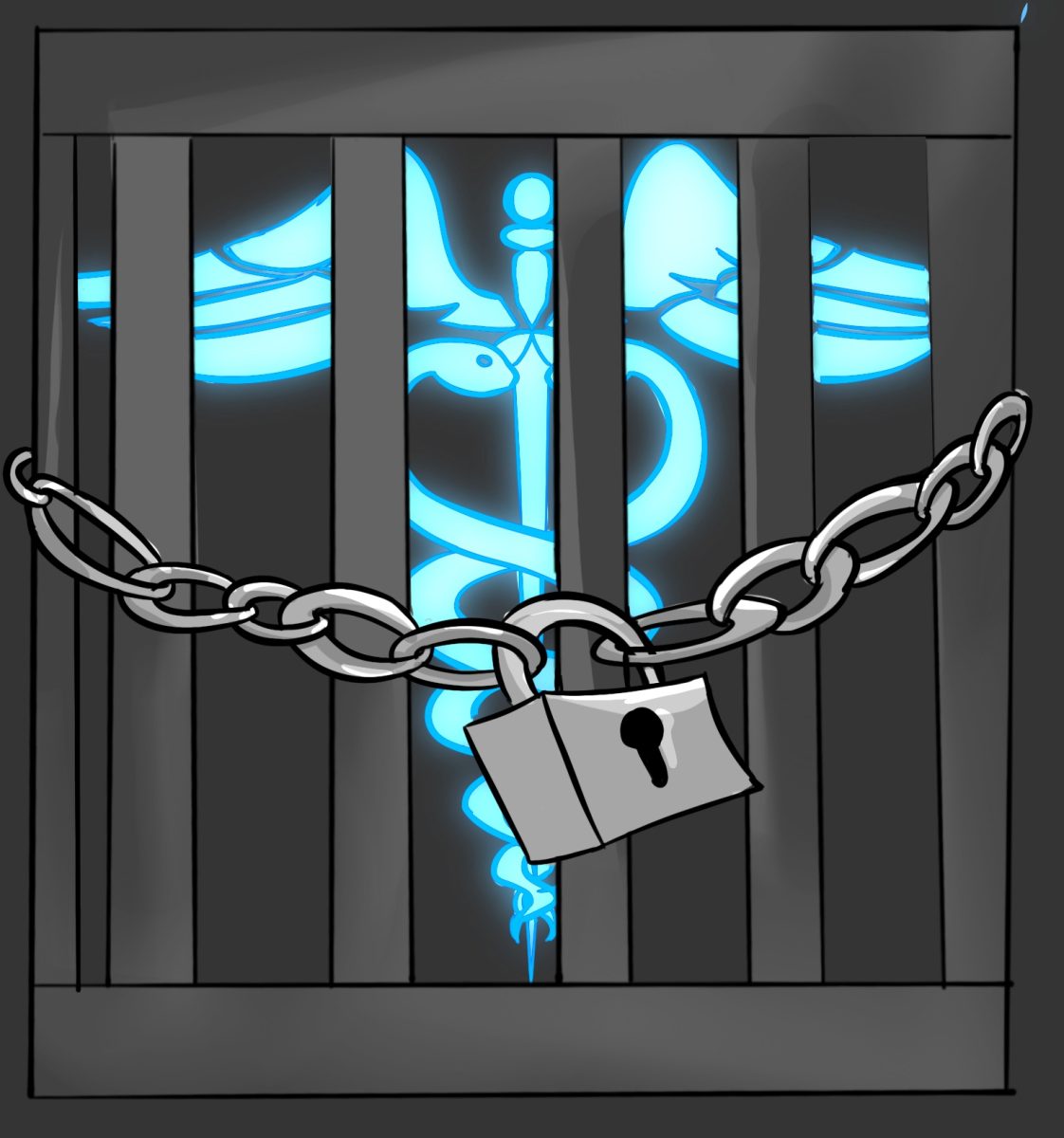Juniors Natalie Vo and Sahasra Vankayalapati began the first Health Occupations Students of America club at SCHS this school year, serving as co-presidents. Vo and Vankayalapati, however, faced several challenges while starting and continuing HOSA.
Vo was inspired to start the club because she saw that there was not a specific way for students interested in medicine to have more educational experiences. After seeing other people start clubs to pursue their own passions, she knew that it was necessary for her to do the same in order to introduce herself and others to the field.
“I already knew that my friends had tried to start DECA (Distributive Education Clubs of America) at school, which is similar to HOSA. I saw how many students were interested in med and how many students did not have an outlet for their passion in medicine,” Vo said. “ I wanted to start something that would connect us all together and allow us to have an introduction to the pre-med world before college.”
At first, the co-presidents believed the process of starting the club would be easy. It proved to be challenging, however, due to the necessary steps for completing the application. Vankayalapati explained that with persistence, the two were eventually able to begin the club.
“The idea of starting a whole club seemed really easy, but the whole process was actually very challenging. The HOSA organization made instructions for registering our school as an official chapter, very, very confusing. We had to do a lot of research and consult students from other schools, which was very stressful and took a lot of time and commitment,” Vankayalapati said. “But in the end, we were successfully able to register our school for an official affiliation with the organization.”
HOSA is a competition-based club. Each competition consists of several different events based on different medical specialties or practices, such as forensic science or health education. Events are split into rounds, which are made up of several other events, which can range from multiple-choice tests to physical skill evaluations. Students take an entrance test that determines if they will be able to go to the next competition. There are three different competitions per year, and each competition is a qualifier for the next.
Due to how difficult the entrance tests and competitions can be, only a handful of students could afford the expenses and resources. Nevertheless, Vo believes that while it was running, HOSA was successful, and it gave students a place to learn about medicine.
“Considering all of the challenges and considering that we also are all just high school students, I would say we were pretty successful because we managed to get through it even though we had no clue what we were doing, and even though the majority of us didn’t move onto the next round, it was definitely a really good learning experience and a lot of people learned a lot about the different fields that they could be interested in that wouldn’t have been readily accessible at our school,” Vo said.
Vankayalapati explained that the main challenge the club ran into was a lack of access to necessary resources.
“We mainly ran into the issue of not having any CTE-certified teachers on campus, which required us to seek out an advisor off campus in order to create a HOSA chapter, as you must have a CTE-certified advisor to start a chapter,” Vankayalapati said. “We also ran into the issue of him figuring out payments, since our school wouldn’t fund our club. We would all have to pay out-of-pocket or try to fundraise somehow, which is quite hard as there are a lot of fees for HOSA.”
The difficulties continued past the process of starting the club. After dealing with financial issues and a lack of certified advisors, Vo and Vankayalapati ran into a miscommunication that proved detrimental to their club.
“The reason HOSA was removed from our school was because we had an advisor who did not attend our school,” Vankayalapati said. “Even though the organization approved our chapter themselves, they were upset that we ‘lied’ about our school details even though we actually did not.”
Vo shared that the situation felt unfair because they had worked hard to start the club and right before they had planned to be at the state competition, HOSA canceled their chapter.
“I think that the way that they (HOSA) handled the situation was not fair considering that we were not provided with a lot of direction and information to even start this chapter and making this so difficult,” Vo said. “Then telling us after we made it to the state competition, that we have to have our chapter canceled just because our school doesn’t have access to these same classes and resources as other schools.”
Vankayalapati shared her frustration that the club had been a great opportunity for students. She noted that the students who could have gone to the competition would have had a great experience they deserved, but this was taken away for what she sees as unjust reasons.
“HOSA is a really good opportunity for high school students interested in medicine and science, and it really sucks that we can’t have such a nice club at our school simply because we don’t have as many resources as others,” Vankayalapati said. “The whole organization has made this super unfair because four of our members qualified for the state competition, but our chapter was still removed, and those people can’t compete for something they worked hard for.”
Despite the difficult journey of creating the club and the loss of having it removed from SCHS, Vankayalapati revealed that she and Vo plan to begin another club that will give students interested in medicine a way to get involved in their interests.
“My co-president and I would like to start another medicine-related club in order to pursue our passions still,” Vankayalapati said.


